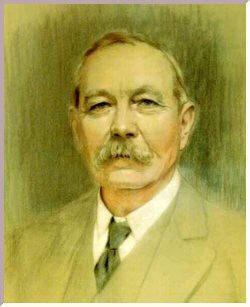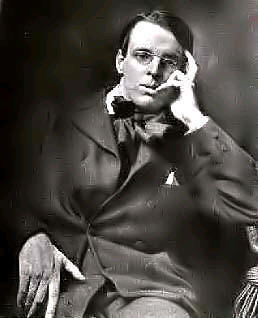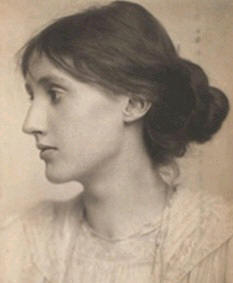The purpose of this course is to expose you to British (and some Irish) literature from the 1780s to the 1930s; however, we will begin the course by discussing the poetry of Alexander Pope, an important eighteenth-century figure to get a sense of the transition from Neoclassical to Romantic literature. The course is organized by authors for the most part; however, there is a loose chronological structure as well. We will strive to discover qualities, methods, and themes that unify the literature of the Romantic, Victorian, and Modern periods and even question the logic of cordoning off literature into periods for study. We will also connect the texts to the social, historical, and cultural occurrences that are contemporary to our selections and examine the interplay between art and “real life.”
 Throughout
the semester, we will uncover various useful approaches to the works with the
idea in mind that while there is no one correct reading, some readings
are more convincing than others, and other interpretations are completely
implausible. By the term’s end, I
hope you will be able to argue effectively for your particular reading(s) of a
text in writing and orally; have a general understanding of Romantic, Victorian,
and Modern British literature and be able to question these categories; and have
developed a curiosity to explore British literature further.
Throughout
the semester, we will uncover various useful approaches to the works with the
idea in mind that while there is no one correct reading, some readings
are more convincing than others, and other interpretations are completely
implausible. By the term’s end, I
hope you will be able to argue effectively for your particular reading(s) of a
text in writing and orally; have a general understanding of Romantic, Victorian,
and Modern British literature and be able to question these categories; and have
developed a curiosity to explore British literature further.
There
will be HUGE gaps in our coverage. The
one hundred and fifty-year period we are
exploring is probably the richest and most diverse
period of literary creation in the history of Britain (Professor Belschner would
probably disagree), so there is no way we
could read everything that should be read.
For example, we are reading only one full-length novel, only one play,
and only a few authors who are not firmly entrenched in the literary
canon. This class will be a lot like a buffet at your favorite
restaurant—there are many, many sumptuous dishes, but no time to eat (or even
sample) everything in one visit. The
300 and 400 level courses that the English Department offers will give you
greater opportunities to return to the cafe of British literature and eat larger
portions or try foods that were not on the menu on your last visit.
we are
exploring is probably the richest and most diverse
period of literary creation in the history of Britain (Professor Belschner would
probably disagree), so there is no way we
could read everything that should be read.
For example, we are reading only one full-length novel, only one play,
and only a few authors who are not firmly entrenched in the literary
canon. This class will be a lot like a buffet at your favorite
restaurant—there are many, many sumptuous dishes, but no time to eat (or even
sample) everything in one visit. The
300 and 400 level courses that the English Department offers will give you
greater opportunities to return to the cafe of British literature and eat larger
portions or try foods that were not on the menu on your last visit.
 As
for the day-to-day business
of the classroom, my
teaching methods are student-centered. I
will very rarely lecture. As you
will soon discover, I don’t claim to have all the answers.
I have more experience reading than you, but I continue to learn
and experience new pleasures every time I
read or re-read a poem, novel, or
essay (and I've read the works we're studying many, many times). As the course progresses I
hope to learn from you just as you learn from each other and me. To facilitate
this mutual learning, I have designed this class to be student-driven.
On some days we will have large group discussions, on others we will work
in small groups. On one or two occasions we might view a film.
Periodically, I will give you short writing assignments and other
activities that will be graded.
As
for the day-to-day business
of the classroom, my
teaching methods are student-centered. I
will very rarely lecture. As you
will soon discover, I don’t claim to have all the answers.
I have more experience reading than you, but I continue to learn
and experience new pleasures every time I
read or re-read a poem, novel, or
essay (and I've read the works we're studying many, many times). As the course progresses I
hope to learn from you just as you learn from each other and me. To facilitate
this mutual learning, I have designed this class to be student-driven.
On some days we will have large group discussions, on others we will work
in small groups. On one or two occasions we might view a film.
Periodically, I will give you short writing assignments and other
activities that will be graded.
Attendance: Attendance for this class is like attendance in the workplace. If you miss work or arrive late repeatedly, you will lose your job; similarly, if you miss class or arrive late repeatedly, you will fail this class. You are expected to attend all classes. I allow FOUR absences for the inevitable doctor’s visits, illnesses, sports events, court appointments, and funerals that may come up during the semester. If you must miss because of extreme illness or some other emergency, please call my office and leave a message. If you plan to be absent, you should submit work ahead of time. I generally do not accept late work. If you are late for a quiz, you may not make it up. I will deal with circumstances I deem extraordinary on a one-to-one basis.
Books: There are three required texts for this class and you must purchase your own copies (the assigned editions) and bring the appropriate book to class each day. The written word is foundational to our class, and you cannot meet the course objectives without your own texts. Students who consistently forget books will receive an unexcused absence.
Learning Time: You should expect to work an average fourteen hours each week for this class, including the three (sometimes four) hours of class time. You should devote an average of ten-eleven hours out of class each week to activities such as closely reading and analyzing texts; pre-writing, planning, drafting, revising, peer reviewing, and editing for essays and the research project; viewing films; conferencing with me; and studying for exams and quizzes.
The Monmouth College Writing Center
helps students from all disciplines, at all abilities, on any kind of
writing assignment, and in any stage of the writing process. You can stop
by with a first draft or a paper to revise with a peer, or with only an
assignment description to brainstorm together. I encourage you to take
advantage of this free campus service as you continue to improve as writers
and thinkers. The Writing Center is open Sundays from 7-10pm and Mondays,
Tuesdays, Wednesdays, and Thursdays from 3-5pm and 7-10pm, on the top floor
of the Mellinger Center. Writers at every level, freshman to senior, can
improve by having tutors review their work and offer feedback. For more
information about the Writing Center, view the FAQ at
http://www2.monm.edu/cac/writing-center/faq.htm.